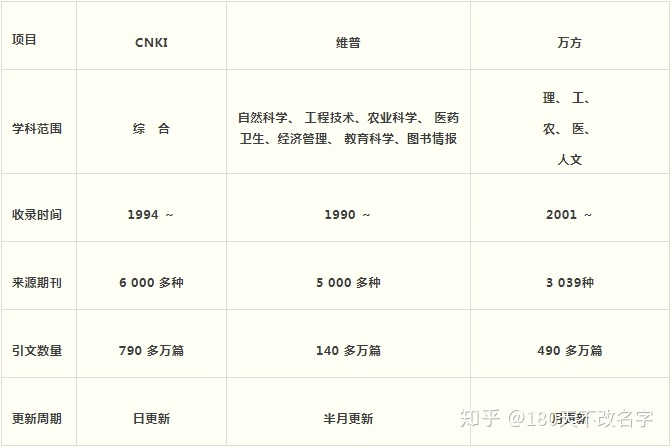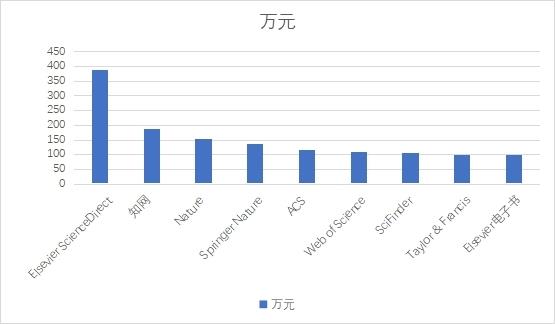The Trend of Zhiwang Case to Guess -- Also on the Legal Issues of Anti monopoly and Compliance in Academic Literature Databases
On May 13, the official account of the State Administration of Market Supervision, Shishuoxinyu, released the news. According to the preliminary verification, the case was filed and investigated for the alleged monopoly of Zhiwang according to law. "Zhiwang, because in 2019, actor Zhai Tianlin was a doctoral candidate at the Beijing Film Academy, but he did not know Zhiwang and unexpectedly left the circle.". In 2021, Zhao Dexin, an economic historian and 89-year-old retired professor at Central South University of Finance and Law, won a lawsuit against Zhiwang and received a cumulative compensation of over 700000 yuan, making her a national topic again. HowNet has also been equated with monopoly due to its stable position in the literature database market. The survey conducted by the Municipal Administration of Supervision on HowNet can be said to be a response to hot spots.
On the same day, the official account also pushed the article "Maintain the fair competition of academic literature database service market and promote the healthy development of industry standard innovation" ("Maintenance"). Given that the author, Shi Jianzhong, is a member of the expert advisory group of the Anti monopoly Commission of the State Council, the information disclosed in this article is likely to represent the law enforcement thinking of regulatory authorities and the future direction of the case.
1、 HowNet is recognized as a platform enterprise
Firstly, according to the article "Maintenance", HowNet is recognized as a platform enterprise. On February 7, 2021, the Anti monopoly Commission of the State Council issued the "Anti monopoly Guidelines on the Platform Economy" (the "Guidelines"), which further refined the anti monopoly obligations for platform enterprises. Since the end of 2020, many Internet platform companies have been punished for abusing their dominant market position and for concentration of operators.
According to the definition of the Guide, a platform refers to a form of business organization that enables interdependent bilateral or multilateral entities to interact under the rules provided by a specific carrier through online information technology, thereby jointly creating value. As a provider of academic literature databases, HowNet is somewhat different from typical Internet platform companies, such as UGC companies, search companies, e-commerce companies, and social networks. For journals, authors cannot freely upload content on HowNet. Authors first submit their contributions to the journal publishing house, and then the journal licenses or transfers the network communication rights to HowNet. Although the content of the database is massive, it is still smaller than that of UGC type enterprises. The significance of databases is to quickly query academic literature through certain logical retrieval methods. The user pays the subscription fee. However, compared to the above definition, it can be seen that the business model of a database also involves bilateral entities and can interact under the rules provided by the platform. In any case, characterizing HowNet as a platform enterprise undoubtedly imposes additional legal obligations and responsibilities on HowNet courses.
2、 HowNet is considered to have a dominant market position
The prerequisite for abusing market dominance is to have a dominant market position. As mentioned in the previous article "Maintenance", "The type and quantity of Chinese academic literature, the number of journals, and the quantity and quality of exclusive journals included by HowNet, as well as the scale and coverage of users, user dependency, and market sales, have been significantly in a leading position for a long time. Based on analysis, it can be basically determined that HowNet has a dominant market position.".
Whether a person has a dominant market position is often the first defense of an accused person who abuses the dominant market position. The defense usually starts with defining a larger market, combining various indicators of market share, as well as factors such as entry barriers, to demonstrate one by one that its market power is small, or that despite market power, it still faces competition and does not have a dominant market position.
For various indicators of market share, sales revenue is often the most important factor. More than 50% will be presumed to have a dominant market position. According to public channels, the revenue of HowNet in 2021 will be about 1.3 billion, and it is expected that the revenue of Wanfang and Wipe will be significantly smaller than that of HowNet. Combining the number of journals it provides, the number of downloads, the number of users, and other indicators, it is difficult to argue that it does not have a dominant market position.
The following figure shows some key indicators of the three major databases:

Network screenshot
3、 Possible alleged misuse of HowNet
(1) Exclusive authorization
In the case of free competition, an exclusive agreement protects both parties. The seller/licensor can obtain higher returns, and the buyer/licensee is willing to invest more resources. However, Article 17 (4) of the Anti monopoly Law actually restricts the subject with a dominant market position to reach an exclusive agreement. This article stipulates that there is no legitimate reason to restrict trading counterparties to only conduct transactions with them or only with their designated operators. According to the article "Maintenance", HowNet is believed to have signed exclusive agreements with a large number of journals and universities, limiting their cooperation with other third-party academic literature database service platforms, locking in high-quality academic resources upstream, and artificially creating barriers to knowledge flow, making it difficult for other competitors to compete fairly with them, affecting knowledge sharing and dissemination. Therefore, HowNet is likely to be found guilty of violating the exclusive agreement.
According to the article "Maintenance", the first alleged abuse of HowNet is to obtain ultra-high profits by including them at low prices and selling them at high prices. As the first provision of Article 17 of the Anti monopoly Law stipulates that goods are sold at unfairly high prices or purchased at unfairly low prices. HowNet may have violated the Anti monopoly Law by engaging in both of the actions described in this article.
(2) Selling goods at unfairly high prices
Another charge against HowNet is that it has significantly increased database prices for many years without justifiable reasons. Similarly, this act may also be suspected of violating the first paragraph of Article 17 of the Anti monopoly Law by selling goods at unfairly high prices or purchasing goods at unfairly low prices.
4、 Amount that may be punished by HowNet
Article 47 of the Anti monopoly Law stipulates that if a business operator violates the provisions of this Law and abuses its dominant market position, the anti monopoly law enforcement agency shall order it to stop the illegal act, confiscate its illegal income, and impose a fine of not less than 1% but not more than 10% of the sales volume of the previous year.
If calculated based on the total operating revenue of HowNet in 2021, the amount of the fine would be between 13 million and 130 million, and the illegal income could also be confiscated. However, considering that recent administrative penalties for platform companies have not been accompanied by confiscation of illegal income, the probability of HowNet being confiscated of illegal income is low. At the same time, Alibaba's administrative penalty is 4% of the turnover, and Meituan's penalty is 3%. Considering that HowNet involves professional fields and the knowledge economy, as well as the aura of "China Knowledge Infrastructure Project", it is estimated that the penalty amount cannot be too high, and it is estimated that the proportion will not exceed 3% of operating revenue.
5、 What changes will be made in addition to penalties
The article "Suggestions" points out that in terms of regulatory measures, it is important to comprehensively apply hierarchical regulatory measures that combine hard and flexible measures, further strengthen administrative guidance for large databases such as HowNet, urge and guide them to actively fulfill their social responsibilities, and actively promote the open sharing of data.
Based on the above, it can be seen that regulatory authorities will require HowNet to stop illegal activities, which in some cases will change some business models of HowNet. Presumably, in addition to being fined, HowNet may be required to:
1. Stop signing exclusive agreements with journal publishers
However, the possible negative impact is that in this case, the licensing fees of the journal publishers may be forced to decrease.
2. Increase the inclusion fee for authors
The difficulty of this article is that HowNet does not directly purchase copyrights from authors, so HowNet can only increase the licensing fees for journal publishers. However, it is unclear whether the increased licensing fees will be implemented by the authors.
3. Reduce subscription fees for users
HowNet may be forced to reduce subscription fees for downstream individual users, as well as universities and research institutions. This point is favorable. However, as described below, Chinese databases only account for a small proportion of university procurement, so reducing this cost will not fundamentally change the industry's ecology. In addition, given the strict approval system adopted by Chinese journal publishers, there is also an impulse to increase prices, and the increase in copyright fees inevitably needs to be passed on to downstream users. In the long run, subscription prices for HowNet and other literature data will still show an upward trend.
6、 Off topic and outlook
The team of the author is one of the few professional lawyer teams in China that have really been exposed to legal issues related to academic literature databases. In 2021, the author was invited to provide training for the Digital Resource Acquisition Alliance of University Libraries (DRAA). At the first DRAA Group procurement negotiation workshop hosted by DRAA, the author conducted training on antitrust law and English contracts.
In fact, the HowNet database is only the tip of the iceberg for domestic universities and research institutions. Note that for science and engineering, the world's top academic achievements are mainly published in English. However, databases based mainly on Chinese journals such as HowNet are far from meeting the needs of Chinese scientific research.
The following is the cost of the database purchased by Tsinghua University from 2021-2022 obtained from public information

For Chinese research institutions, HowNet is not a big problem. Due to the buyer's alliance of university literature procurement, the Digital Resources Procurement Alliance of University Libraries (DRAA) has not even included HowNet in joint procurement. For Chinese scientific research institutions, top academic journals, such as Nature of Science and Technology, The Lancet of Medicine, and so on, are all in English. China does not have top English language journals. The management system of Chinese journals is also different from that of other countries around the world.
Therefore, comprehensive reform measures should be taken for the management departments of scientific research and education in China, such as encouraging the handling of "open source journals"; Attempt to establish a completely free national literature retrieval platform for downstream users; Encourage the establishment of English journals, etc; Supplemented by legal and commercial means.
For Chinese universities and scientific research departments, the legal and commercial strength of negotiations should be enhanced, and relevant policy tools should be skillfully used, especially for the introduction of databases.
For database providers, the HowNet case undoubtedly rings the alarm bell. For leading enterprises, compliance with the antitrust law should be strengthened. Carefully signing exclusive agreements and increasing subscription prices should provide more sufficient reasons and evidence.
Related recommendations
- Tax lawyers review the draft of the revised Tax Collection and Administration Law for soliciting opinions
- New Measures for Punishing "Dishonesty" by the Supreme People's Court at the Two Sessions in 2025 (Part 3): "Height Limit" Single Release Mechanism
- New Measures for Punishing "Dishonesty" by the Supreme People's Court at the Two Sessions in 2025 (Part 2): Grace Period System
- Interpretation of the Management Measures for Compliance Audit of Personal Information Protection - Feeling the Rhythm and Rhythm of Regulatory Flow



